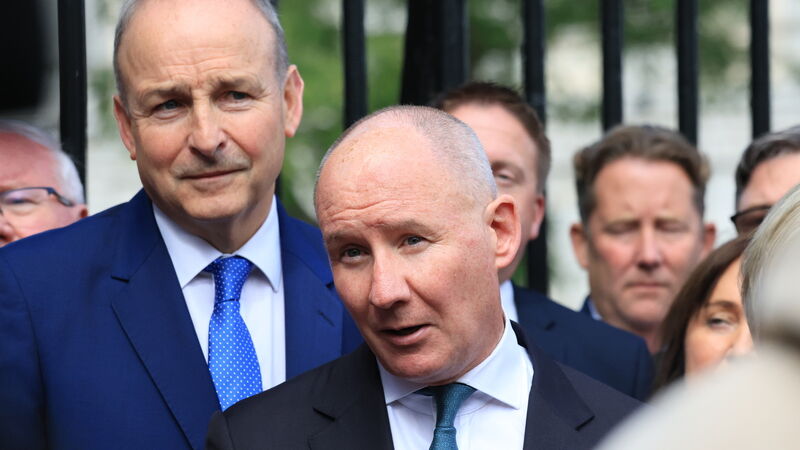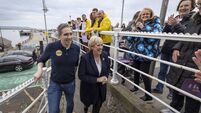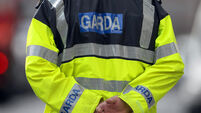Paul Hosford: Jim Gavin's Áras race lasted two weeks. His exit may reverberate for much longer

Jim Gavin and (left) Fianna Fáil leader Micheál Martin. File Picture: Stephen Collins/Collins Photos
What just happened there?
Jim Gavin's official candidacy for the presidency of Ireland lasted just less than two weeks, but may reverberate much longer.
















